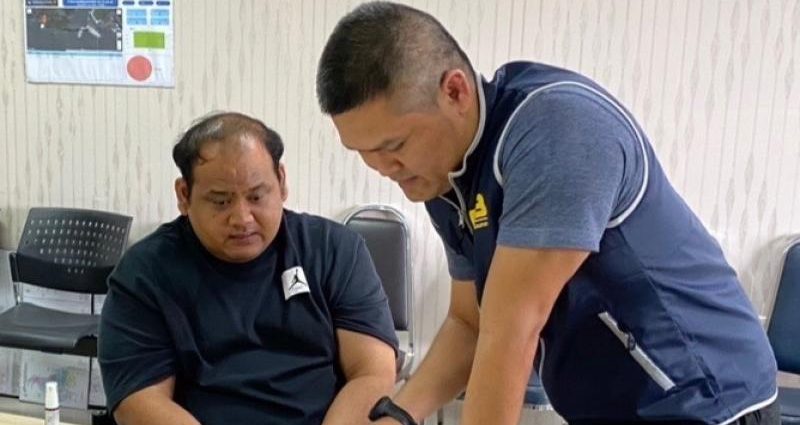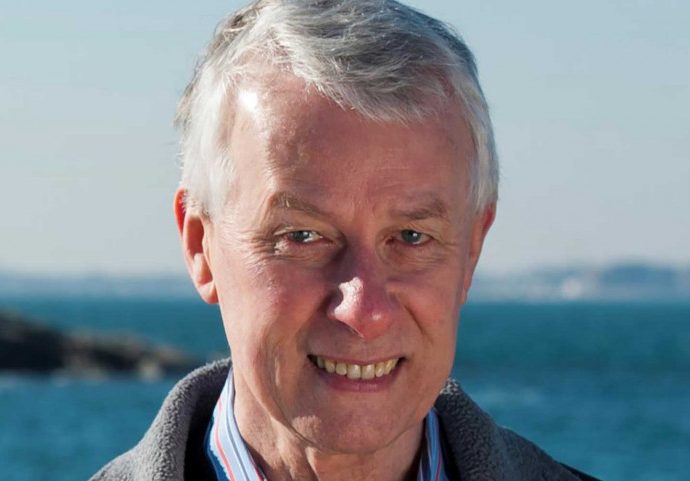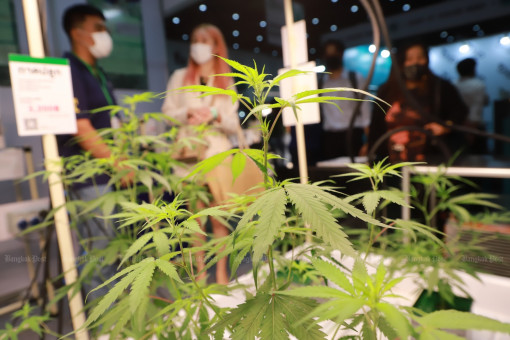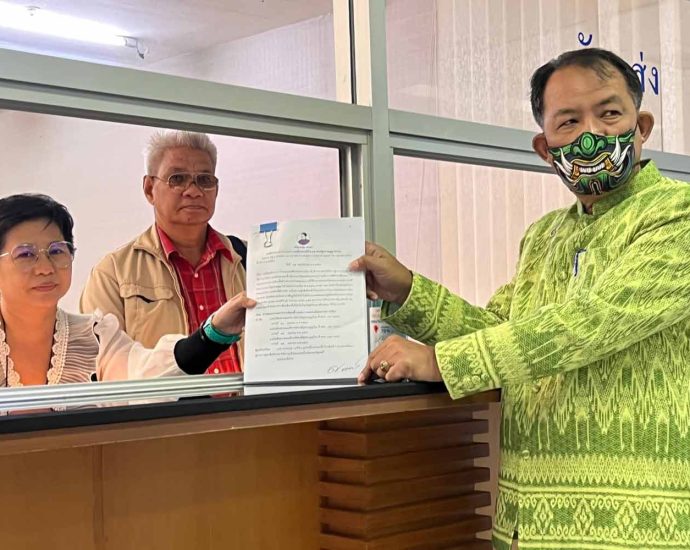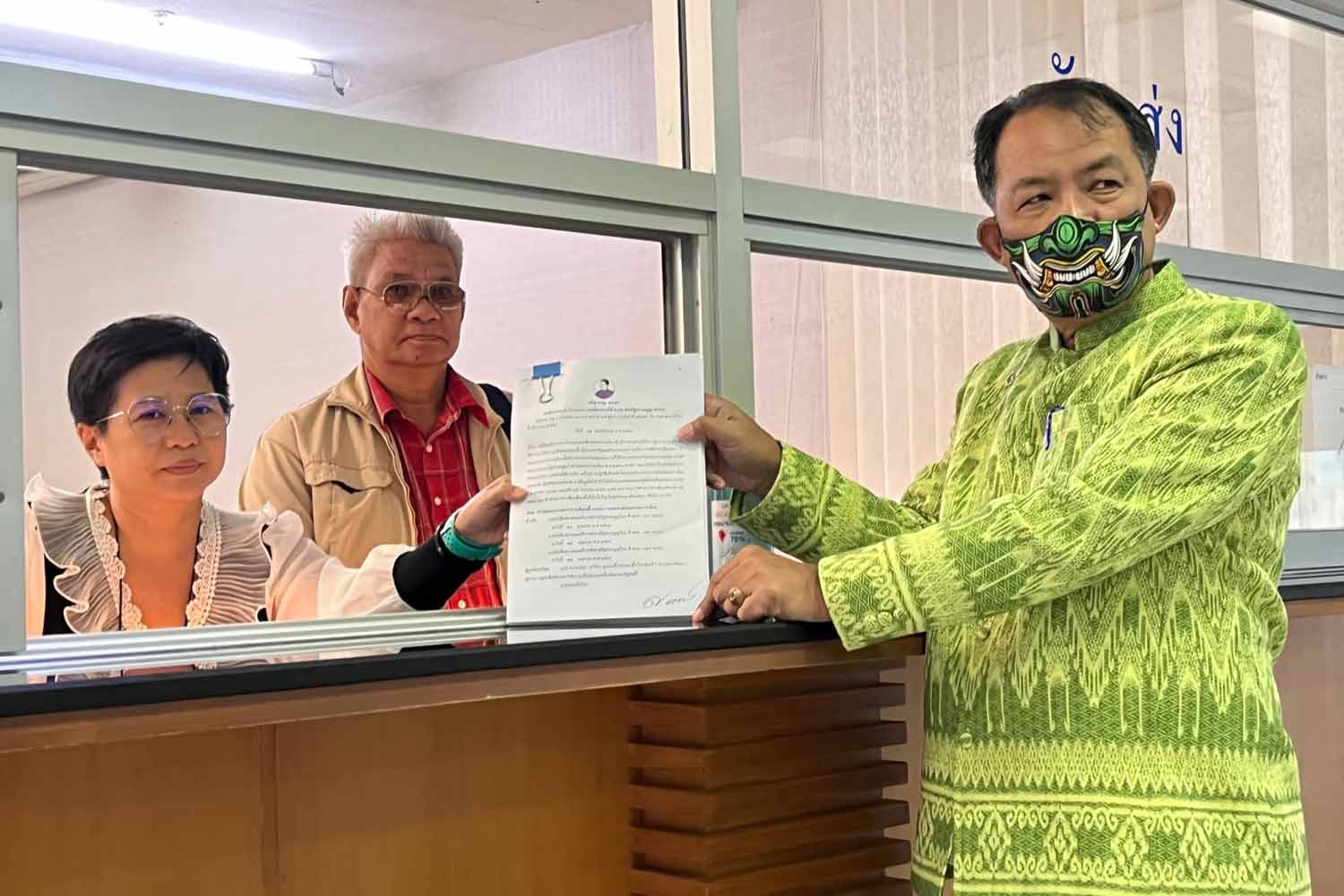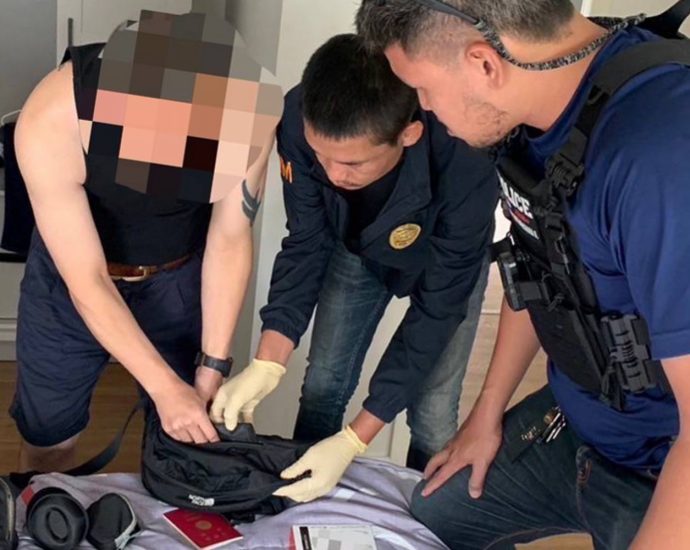Kamnan Nok charged over cop killing
PUBLISHED : 16 Nov 2023 at 04:08

Praween Chankhlai, also known as “Kamnan Nok”, his seven associates and 21 police have been charged in connection with the murder of a highway policeman at a party at his house in Nakhon Pathom on Sept 6.
A Crime Suppression Division (CSD) source on Wednesday said CSD investigators have wrapped up the probe into the shooting of Pol Maj Sivakorn Saibua, a Highway Police Sub-Division 2 officer.
He was killed by Thananchai Manmak at Mr Praween’s house in Muang district during a dispute over a promotion concerning the kamnan’s policeman nephew during the party.
Mr Praween surrendered to police the following day, while Thananchai was killed in a gunfight with police in Kanchanaburi.
Investigators agreed to file a lawsuit against Mr Praween for ordering Sivakorn’s death and for attempting to kill him.
He has denied all charges and has been remanded at Bangkok Remand Prison. Investigators will submit the case dossiers to prosecutors today for further action in the case.
Investigators also agreed to press charges against six other officers who arranged his escape from the murder scene.
The six are: Pol Lt Prasarn Rodpol, 58, Pol Lt Narongsak Taeng-ampai, 58, Pol Capt Natthapol Nakkorn, 59, and Pol Lt Sansern Srisawat, 55, all from Highway Police Station 1.
The other two are Pol Maj Kiatisak Somsuk, 52, an investigator at Krathum Baen police station in Samut Sakhon and Pol Sub Lt Nimit Salidkul, 57, a traffic police officer in Nakhon Pathom.
Fifteen other officers at the party also face charges of dereliction of duty. All are being remanded at Bangkok Remand Prison.
Investigators also charged seven of Mr Praween’s associates with colluding to destroy and conceal evidence and supporting officers in neglecting their duty, said the source.

